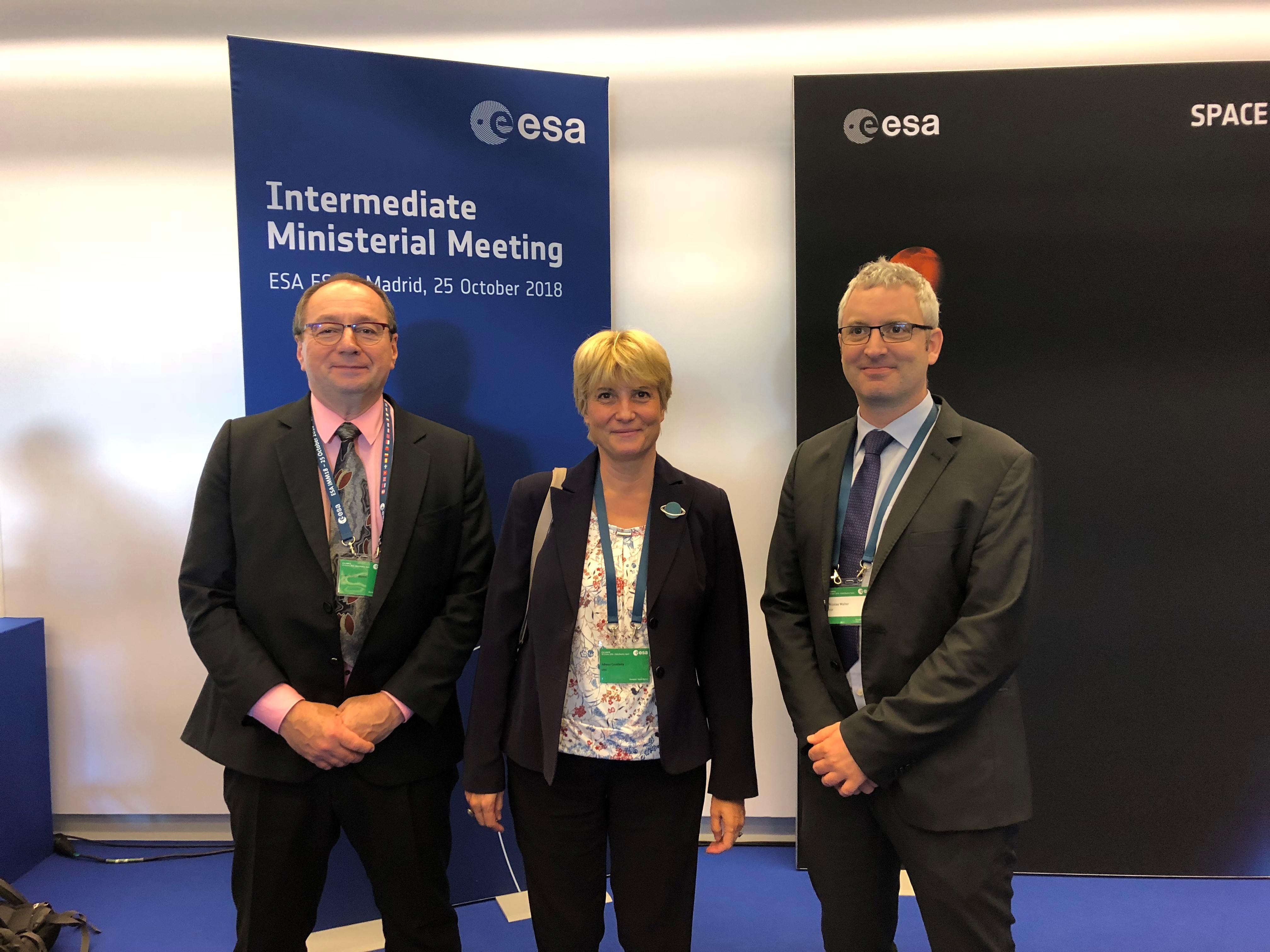|
The European Space Sciences Committee (ESSC) – the independent expert committee on space sciences of the European Science Foundation (ESF) – welcomes the outcome from the recent ESA Intermediate Ministerial Council meeting that took place in Madrid, Spain on 25 October 2018, under the chairmanship of Mr Pedro Duque, Spanish Minister responsible for space.
The ESSC wishes to express strong appreciation and support for the future vision and extensive commitment demonstrated by ESA Director General Jan Wörner in his proposal on “A United Europe in Space”, which was adopted by ESA Member States on 25 October 2018. This far-sighted (2019-2028) long-term plan strives to identify the "…substantial evolution expected to occur in the various fields of space activity and the different role that players and stakeholders, and primarily the Agency’s activities and programmes will be called upon to play in the coming years."
The ESSC also witnesses with satisfaction the notable progress that was achieved in improving coordination between ESA and the European Union institutions. The ESA Member States adopted a resolution on 25 October 2018, giving mandate to the ESA Director General to establish appropriate relations between ESA and the European Union. The ESSC recalls that it has advocated for several years a reinforcement of these relations in order to promote a united and collaborative spirit across Europe which will foster European identity, energy and cohesion around the achievement of excellence in space sciences and technology.
The ESSC Chair, Dr Athena Coustenis, warmly welcomed these resolutions: "This is an acknowledgement of ESA Member States’ interest and willingness to invest in space science, technology and infrastructure. I urge Member States to continue to recognise space sciences, not as a cost but as a high-return investment with broad and exciting potential for European citizens and the economy."

The ESSC was represented in the Intermediate Ministerial Council by its Chair, Dr Athena Coustenis, and its Executive Scientific Secretary, Mr Nicolas Walter. ESF, the hosting organisation for the ESSC, was represented by its Chief Executive Dr Jean-Claude Worms.
Dr Jean-Claude Worms said: "Only with a strong space programme compatible with its scientific and economic importance on the world scene can Europe continue to play a major role at the international level in an area that will witness major changes in the years to come. This can only be achieved through ambitious long-term planning, adequate funding, and coordination between the various institutional actors, and primarily ESA and the European Union."
Notes for Editors
European Science Foundation
The European Science Foundation (ESF) is an expert science services organisation that provides a strong contribution to the concrete development of the European Research Area. It is building on core strengths developed over 44 years in research evaluation and project supervision and management. ESF hosts three Expert Boards (including the ESSC) and the newly created Europlanet Society, which provide in-depth and focused scientific expertise in selected disciplines.
European Space Sciences Committee
The European Space Sciences Committee (ESSC), established in 1974, grew from the need to give European space scientists a voice in the space arena at a time when successive US space science missions and NASA’s Apollo missions dominated space research. More than 44 years later, the ESSC actively collaborates with the European Space Agency (ESA), the European Commission, national space agencies and the ESF Member Organisations. This has made ESSC Europe’s most prominent space advisory body. The mission of the ESSC today is to assemble an independent forum for scientists to discuss space science issues and provide advice to the different stakeholders. The ESSC is represented ex officio in all relevant ESA scientific advisory bodies, it has members in the EC space advisory structure, and it has observer status at the ESA Ministerial Council. At international level, ESSC maintains strong relationships with the US National Academies Space Studies Board. The ESSC is the European Science Foundation’s (ESF) Expert Committee on space sciences and the ESF’s interface with the European space community.
Contact
Mr Nicolas Walter
ESSC Executive Scientific Secretary
European Science Foundation
nwalter[at]esf[dot]org
+33 (0)3 88 76 71 66 |
修改评论